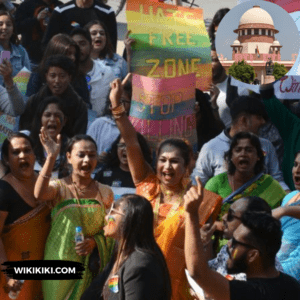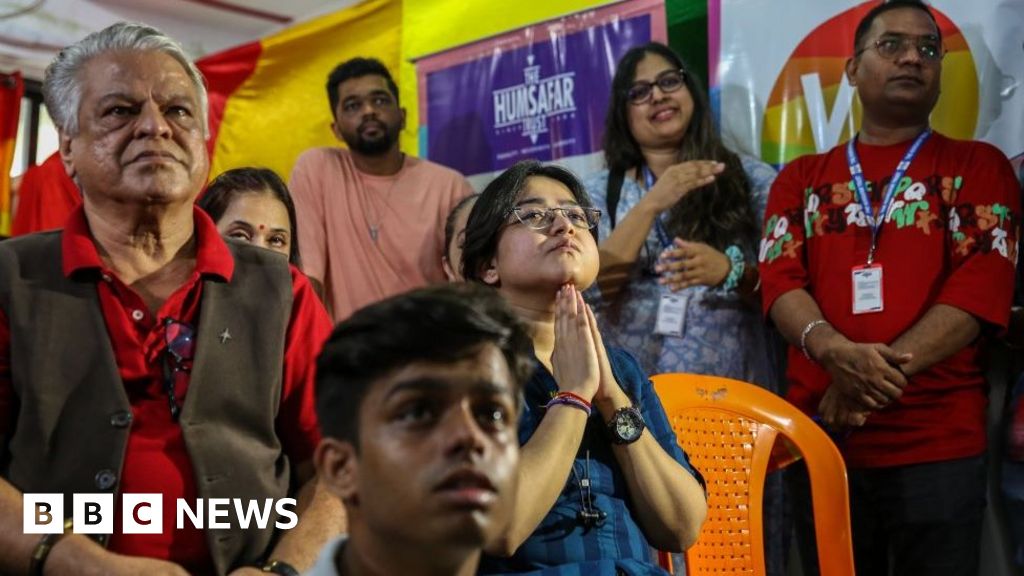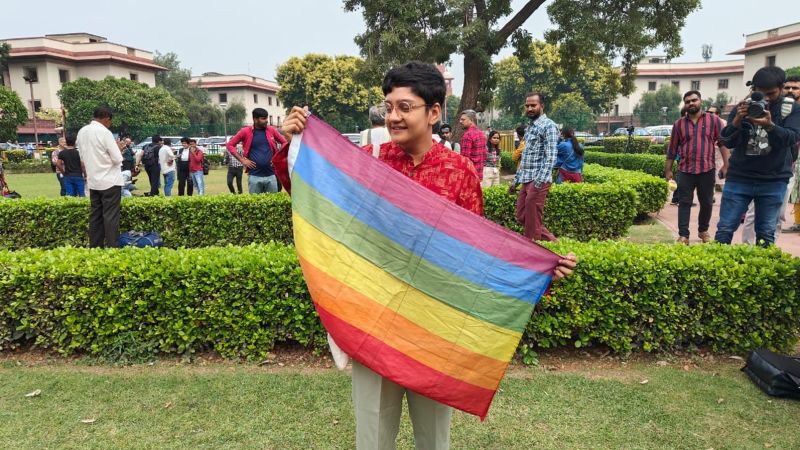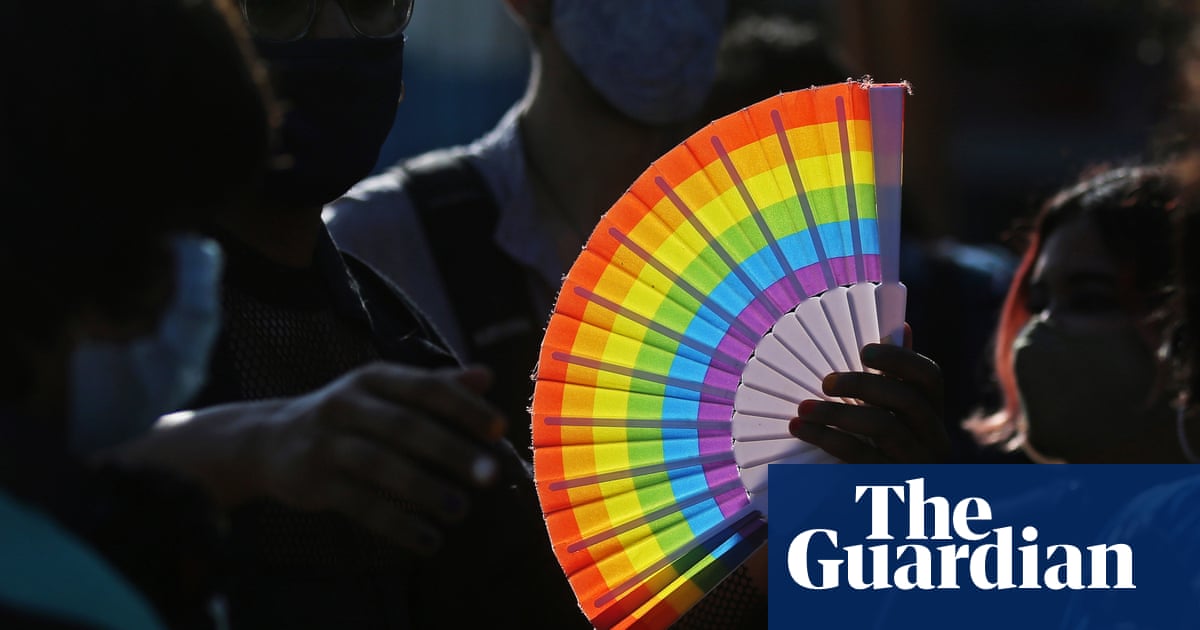India’s Supreme Court recently delivered a verdict on same-sex marriage, addressing the hopes and worries of millions of LGBTQ+ people looking for marriage equality in the country. While the court declined to legalize same-sex unions, it acknowledged the rights of the LGBTQ+ community and their struggle against discrimination.

Also Read: Russia-Ukraine War Enters Day 600: Key Developments
This decision has started both disappointment and hope, with activists continuing their campaign for equal rights.
The Supreme Court’s decision came after hearings on 21 petitions filed by same-sex couples and LGBTQ+ activists.
These petitioners argued that the denial of the right to marry violated their constitutional rights, making them feel like “second-class citizens.”
Their proposal was to amend the Special Marriage Act by replacing “man” and “woman” with “spouse” to include same-sex unions.
However, the government strongly opposed these petitions, that only the parliament had the authority to discuss the issue of same-sex marriage, citing concerns of societal “chaos.”
On October 17, 2023, the Supreme Court’s five-judge bench announced its decision. The judges agreed with the government’s stance, stating that only the parliament could legislate, and the court’s role was limited to interpretation.
However, two of the judges, including Chief Justice DY Chandrachud, supported the idea of granting same-sex couples civil union status with the same benefits as married couples.
Chief Justice Chandrachud outlined directions for the government to end discrimination against the LGBTQ+ community, protect them from harassment and violence, and allow queer and unmarried couples to jointly adopt a child.
Also Read: Israel-Hamas Conflict Day 10: All You Need to Know
These directions, while not backed by the majority of the bench, highlighted the complexities of the matter.
The Supreme Court’s decision disappointed LGBTQ+ activists and same-sex couples who had hoped for a historic step toward marriage equality.
They felt let down by the court’s decision to rely on a government committee to consider granting rights and privileges to same-sex couples, without specifying a timeline for this process.
The legal complexities surrounding the issue of same-sex marriage in India were evident throughout the hearings.
The bench recognized that numerous laws governed issues such as divorce, adoption, succession, maintenance, and other related matters.
Many of these laws intersected with religious personal laws, making the process of legalizing same-sex marriage even more intricate.
Societal attitudes towards sex and sexuality remain largely conservative. The legal battle for LGBTQ+ rights in India has its roots in the colonial-era laws introduced by British rulers in 1860.
These laws criminalized same-sex intercourse and limited marriage rights to heterosexual couples. Despite a significant step in 2018 when the Supreme Court decriminalized same-sex intercourse, the restrictions on marriage remained intact.
Also Read: X fined $610500 in Australia Over Anti-Child Abuse Practices
Public opinion on LGBTQ+ issues has been gradually shifting in India. Surveys have indicated a growing acceptance of homosexuality, with 53% of respondents in a Pew survey published in June supporting the acceptance of homosexuality.
Despite this positive trend, conservative elements within Indian society have vehemently opposed same-sex unions, citing traditional family values and procreation as their primary arguments against it.
India’s decision on same-sex marriage is not only within the country but also in the international context. While several countries worldwide have embraced marriage equality.
Including neighboring Nepal and Taiwan, India’s ruling highlights the challenges LGBTQ+ individuals face in countries with deeply ingrained societal norms and traditions.
Despite the setback in the Supreme Court, LGBTQ+ activists in India remain resilient. They see the court’s decision as a call to continue their struggle for equal rights.
Activists believe that even though the court did not grant them the right to marry, it provided a platform for educating legislators and the public about LGBTQ+ issues.
Also Read: Disney Celebrates its 100th Year With Once Upon a Studio

/cloudfront-us-east-2.images.arcpublishing.com/reuters/HEWCQPM5JVNLBKQ2SRSYCSBXKU.jpg)





















